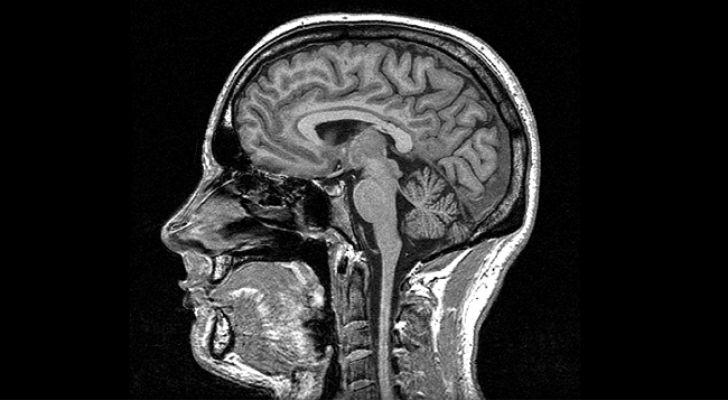Could a Single Injection Enhance Your Brain Function? A Look into Recent Research
The idea of enhancing brain function with a simple injection might sound like something from a science fiction movie. However, recent studies suggest that this concept may not be as far-fetched as it seems. Imagine boosting your memory, increasing focus, and even enhancing creativity with just one shot. While this sounds revolutionary, scientists are making remarkable progress in understanding how certain injections could potentially give your brain a boost. Let’s dive into the research and explore whether this could be the future of brain health.

The Science Behind Brain Enhancement Injections
To understand how a single injection might enhance brain function, it’s essential to first understand how the brain works. Our brains are complex organs with over 80 billion neurons, which communicate with each other to process information. These neurons form connections and pathways that are essential for everything from memory and learning to emotion and decision-making. As we age, some of these connections can weaken, leading to cognitive decline.
One of the most exciting areas of research revolves around neurotrophic factors—proteins that help maintain and grow these neuronal connections. The most well-known of these is brain-derived neurotrophic factor (BDNF). BDNF is vital for memory, learning, and brain plasticity (the brain's ability to reorganize and form new connections). Studies show that higher levels of BDNF are associated with improved cognitive function and a lower risk of neurodegenerative diseases like Alzheimer’s.
This is where the idea of a "brain-enhancing" injection comes in. Researchers are studying how boosting BDNF and other related molecules can improve mental clarity, memory, and focus. One of the most promising candidates for this is ketamine, a substance traditionally used as an anesthetic but now being studied for its cognitive benefits. Low doses of ketamine have shown to rapidly increase BDNF levels and improve mood and cognitive function.

Can Ketamine Boost Memory and Focus?
Recent studies on ketamine have shown promising results in improving cognitive function. A study published in Science Translational Medicine in 2016 found that a single low dose of ketamine could rapidly improve memory and problem-solving skills in healthy individuals. Researchers noted that ketamine stimulates BDNF production, which plays a crucial role in forming new neural connections and improving brain plasticity.
Moreover, ketamine's potential benefits extend beyond short-term improvements. A study published in The American Journal of Psychiatry in 2021 revealed that ketamine could help sustain cognitive improvements over time. This suggests that a single injection might not just boost focus temporarily but could lead to long-term benefits for memory and cognitive function.
However, while ketamine’s effects are promising, it's crucial to note that it is still not approved for widespread use in cognitive enhancement. The research is still in its early stages, and concerns about the long-term safety of ketamine, especially in older adults, remain.
Enhancing Creativity and Mental Flexibility
Another fascinating aspect of brain enhancement involves increasing creativity and mental flexibility. Cognitive flexibility is the ability to adapt your thinking and problem-solving approaches when faced with new or unexpected situations. It’s a critical skill for both personal and professional life, especially as we age and encounter more complex challenges.
Researchers are exploring whether enhancing BDNF can improve creative thinking. A study from Frontiers in Psychology in 2017 found that increased BDNF levels correlated with improved performance on tasks requiring innovative thinking. This suggests that boosting BDNF might not only improve cognitive function but also enhance creativity, allowing you to approach problems with a fresh perspective.
While creativity-boosting injections sound appealing, there is still a need for more research to determine how specific molecules like BDNF or ketamine can help foster creativity. The effects on creativity are not as well understood as their impact on memory or focus, but early research is promising.

The Risks of Brain-Enhancing Injections
As exciting as the potential benefits of brain-enhancing injections may sound, there are still significant risks and uncertainties that need to be addressed. Although substances like ketamine are being studied for cognitive benefits, there are concerns about their safety, especially in the long term.
For example, ketamine, while effective in small doses, can cause hallucinations and addiction if used improperly. Researchers are also concerned about the potential for over-reliance on these injections, which could encourage individuals to neglect other healthy brain practices, like exercise, diet, and mental stimulation.
Additionally, the research on neurotrophic factors is still in its infancy, and the full scope of their long-term effects on brain health is unclear. There’s also the issue of individual variability—what works for one person may not work for another.
How Can You Boost Brain Health Right Now?
While waiting for a brain-enhancing injection to become widely available, there are plenty of ways to support and improve brain health right now. The following strategies, backed by scientific research, can help you maintain mental sharpness and improve cognitive function.
1. Exercise Regularly
Regular physical activity is one of the best ways to boost brain health. Research shows that aerobic exercise, like walking, jogging, or swimming, can increase BDNF levels and promote brain plasticity. A study published in The Journal of Neuroscience found that just 30 minutes of moderate exercise could significantly increase BDNF levels in the brain, improving learning and memory.
2. Eat a Brain-Healthy Diet
What you eat plays a crucial role in brain function. A diet rich in antioxidants, healthy fats, and nutrients like omega-3 fatty acids can support cognitive health. Foods like salmon, blueberries, walnuts, and leafy greens are particularly beneficial. A study published in The Journal of Alzheimer's Disease found that a Mediterranean diet, which is high in fruits, vegetables, and healthy fats, can improve cognitive function and reduce the risk of dementia.
3. Stay Mentally Active
Keeping your brain engaged with new learning experiences is essential for cognitive health. This can include activities like reading, doing puzzles, or learning a new skill. A 2018 study in Neurobiology of Aging found that lifelong learning could increase the number of neural connections in the brain, helping to maintain cognitive function as we age.
4. Socialize and Stay Connected
Social interaction is another key factor in maintaining brain health. A study in The Journals of Gerontology found that engaging in social activities can improve cognitive function and lower the risk of cognitive decline. So, don’t forget to stay socially active, whether through friendships, family, or community involvement.

Looking Ahead: The Future of Brain Enhancement
While the idea of enhancing brain function with a single injection is still in its early stages, research is progressing rapidly. The promise of improving memory, focus, creativity, and overall brain health with just one shot is tantalizing. However, as with any breakthrough in science, it’s important to approach these developments with caution.
In the meantime, adopting healthy lifestyle habits, including regular exercise, a brain-healthy diet, and mental stimulation, is the best way to ensure long-term brain health. While we wait for the next big scientific leap, taking care of your brain today will pay off tomorrow. And who knows? In the future, that simple injection might just be the next step in enhancing our cognitive potential.
If you like this article, please share it with someone in need. Thank you for reading and I wish you a happy life!
